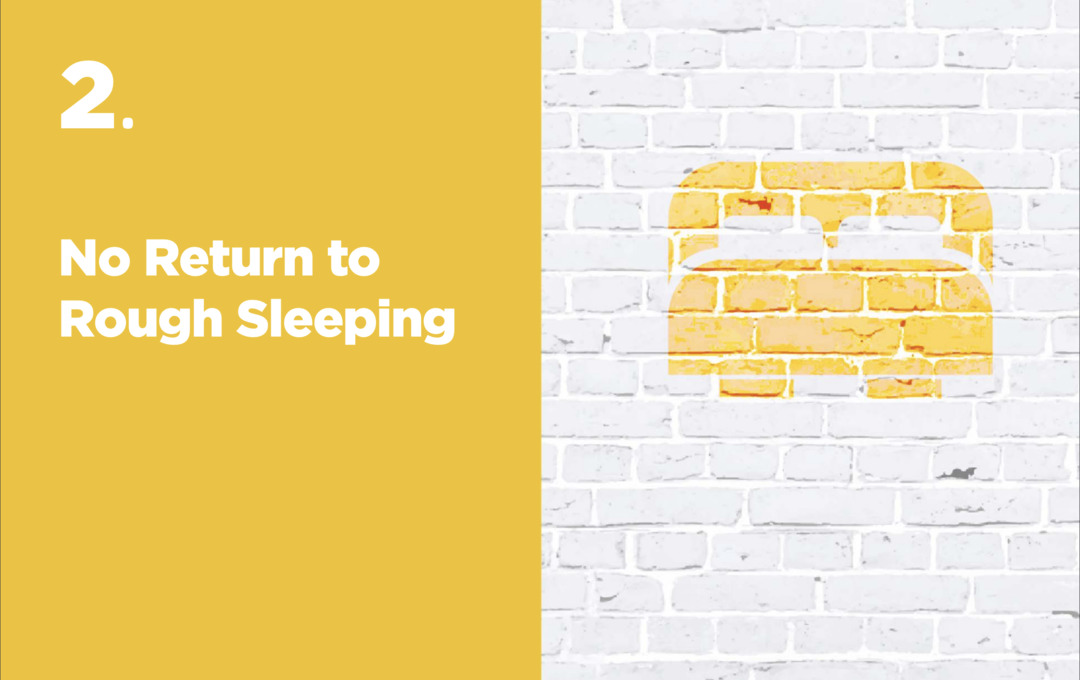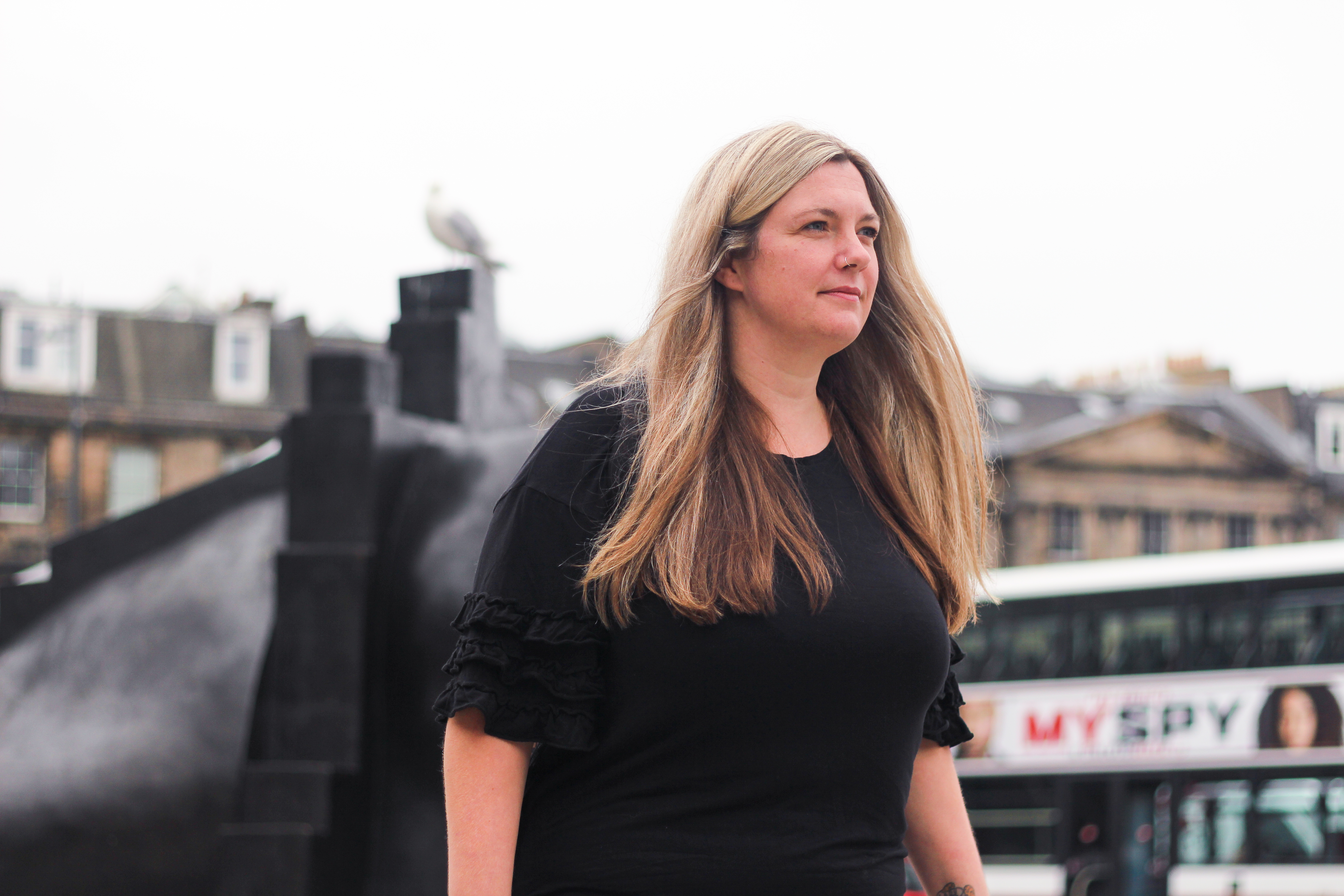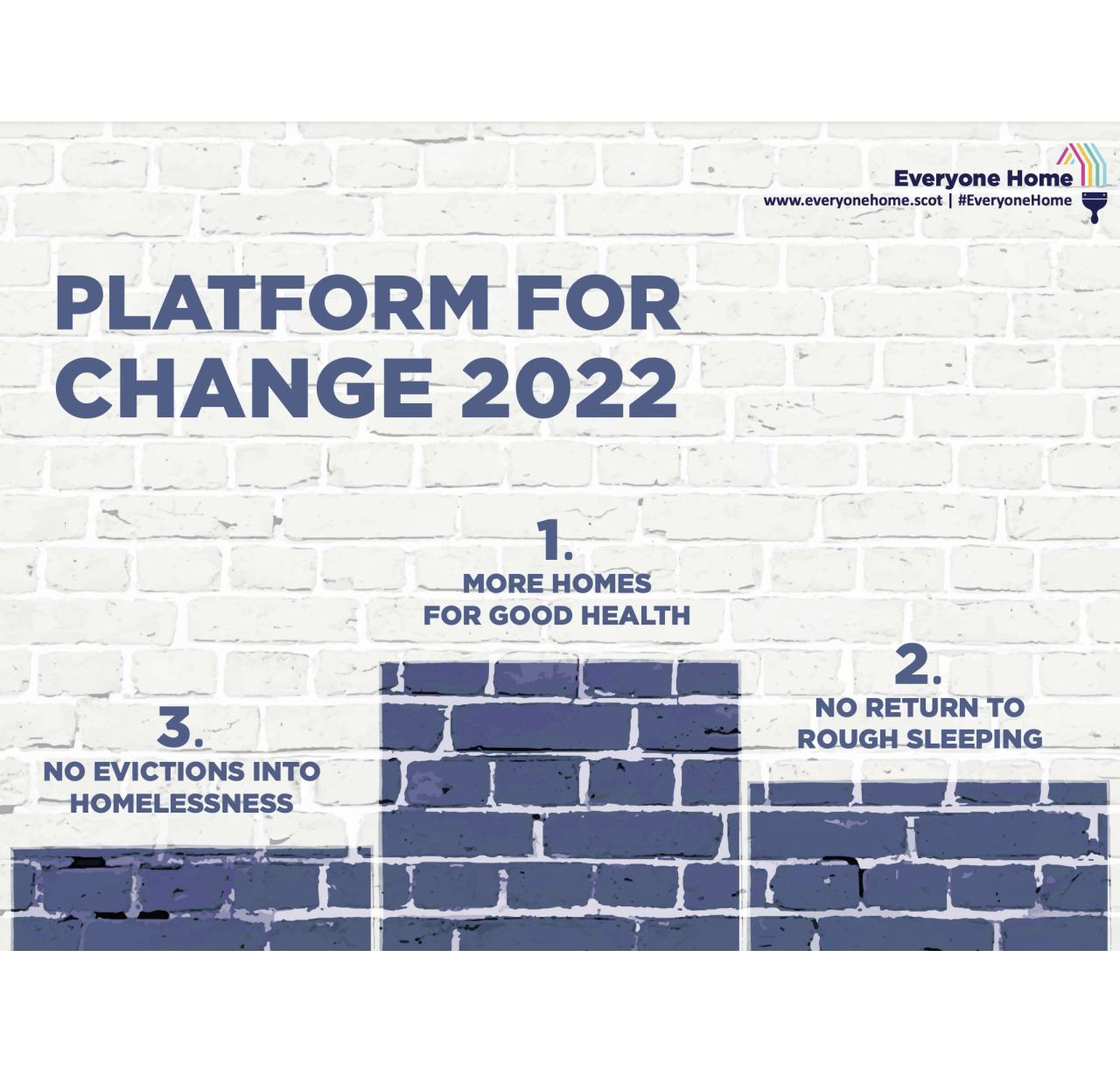Preventing a Return to Rough Sleeping

Last week we began a blog series exploring the key points laid out in the Everyone Home Platform for Change. In the second of three blogs, CEO Ewan Aitken and Hospital Inreach manager Rachael Kenyon discuss the steps towards No Return To Rough Sleeping.
What does No Return to Rough Sleeping mean?
Ewan Aitken, Cyrenians Chief Executive
During the pandemic, emergency responses prioritised getting people off the streets and into temporary or permanent accommodation. That active push to get people out of rough sleeping had a huge impact, and it's vital to make sure levels of rough sleeping don’t return to the way they were before that intervention.
There are a lot of reasons people might find themselves sleeping rough – everyone's story will be different.
Many types of emergency accommodation can be overwhelming and offer residents little agency or security, and often come with the risk of having to leave unexpectedly. Particularly for people with complex needs, the temporary accommodation available may not feel any safer or more tenable than the street.
Others might not have been offered accommodation at all, whether that’s because they haven’t been connected to relevant services or have fallen off the radar, or because they have no recourse to public funds.
Preventing a return to previous levels of rough sleeping means tackling these causes head on. Emergency accommodation must be held to high standards of safety, dignity and ability to meet specific needs. And we need to make sure people don’t ‘slip through the cracks’ - that whatever their background or migration status, however they come into contact with support services, and whatever changes, somebody sees the complexity of their situation and connects them to the support they need.
Preventing Rough Sleeping through inreach and support
Rachael Kenyon, Hospital Inreach

What puts people back on the streets over and over again?
In my experience, it’s often about slipping through the cracks between services. The core of Hospital Inreach is filling those gaps – making sure doctors, social care and housing support are linked up, and that people’s housing and health situations are taken into consideration at every stage. Our Hospital Inreach programme is, at the moment, unique in Scotland, and it’s helped address a lot of the ways people end up being discharged from hospital back into rough sleeping.
It isn’t that clinicians and hospital staff are negligent – the people we work with in the Royal Infirmary are doing their jobs admirably. But once a wound’s stitched up, a bone set, or an infection dealt with, what happens next?
For many people living in temporary or unstable accommodation, a few days in hospital can mean the difference between shelter and rough sleeping. In many cases, because of demand for rooms, hostels or B&Bs will give a room to someone else if residents don’t check in, and we’ve seen situations where, when someone’s been in hospital overnight, their room has been closed and their belongings packed up.
We need to focus not just on access to accommodation, but whether that accommodation is suitable.
If someone has to take care of a wound, they shouldn’t be sharing one bathroom between 10 people.
If they are currently unable to manage stairs, they shouldn’t be staying on the top floor with no working lift. They need to be somewhere they can access support, not an expensive taxi ride away from the hospital.
During the pandemic, we worked with Waverley Care to create space at Milestone House for patients being discharged into homelessness. Initially set up for people leaving COVID-19 care, our Milestone work has expanded to offer step-down care for patients with a variety of needs. When someone’s discharged, Milestone gives us time and space to work with them to find alternatives to rough sleeping or inappropriate accommodation as well as addressing health and additional support needs. For many this has resulted in a permanent tenancy, as we ensure health priority is assessed and link in with services such as sheltered housing and Housing First.
Homelessness is a public health concern, and our work with the NHS is helping clinicians take that into consideration.
For a long time, many people leaving the hospital without permanent addresses have just been put on a bus to the Access Point with the expectation that sthey would be able to access accommodation, and often that’s not the case.
In building relationships in the hospital, we’ve been able to grow the understanding of what issues might come up after discharge, and we’re seeing brilliant results. With a better understanding of what’s needed, hospital staff are able to work with us and their patient to make sure that they have somewhere safe to go. That could mean a call to their B&B to make sure their room is held until they’re discharged, it could be connecting them to appropriate accommodation like Milestone, or it could be an extra night on the ward while accommodation is found. In the first 18 months of the service, 111 people who had no accommodation for discharge have been able to avoid returning to rough sleeping through our inreach support.
Preventing people returning to rough sleeping is what all of us want. When people have adequate shelter and support, they face fewer barriers to accessing and maintaining care; their health is better, and they’re less likely to spend as much time in need of urgent intervention. In particular, when someone is managing recovery from hospital, having a safe place to rest reduces the likelihood of them returning to hospital for additional care.
As the Everyone Home collective says, it’s vital that there’s “no wrong door” to support. Wherever you ask for help, you should be able to get what you need. By building relationships and systems that bridge the gap between different areas of health, housing, financial and social support, we’re helping make sure fewer people slip through the cracks into rough sleeping.
Read about our work towards the other themes in the Platform for Change
- More Homes for Good Health and how we help people make safe homes through Housing First and Communities
- No Evictions into Homelessness and how we're tackling unnecessary evictions and building resilience in housing through programmes like Housing First.
Find out more
Read the 2022 Platform for Change
Find out more detail on actions for all 3 areas of the Platform for Change, and how we're going to keep tackling homelessness going forward.
